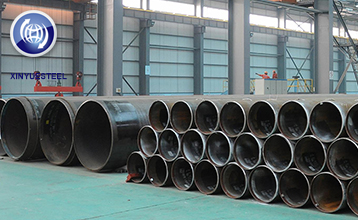Indian mining federation calls for lower import and export taxes
Jan. 13, 2020
According to reports, the Federation of Indian Mineral Industries (FIMI) has called on the government to implement indirect tax incentives to revive the current downturn in mining.
FIMI submitted a letter to the Indian Ministry of Finance on proposals for reform of indirect taxes on different mineral products, requesting that it be included in the national budget before the congress next month.
In the above list, the first place is to eliminate the 30% iron ore export tax. At present, this tax is levied on all iron ore exports of more than 58% grade.
FIMI pointed out that the iron ore export tax increased from 0% in 2009 to 5% in 2010, 20% in 2011, and 30% in December of the same year, making Indian iron ore less competitive in the international market.
Affected by export tax, India's iron ore export volume decreased from 115.37 million tons in 2009/10 to 4.5 million tons in 2015/16. In the 2016/17 fiscal year, the Indian government canceled the export tax on iron ore below 58% grade, and the iron ore export volume rebounded, and the export volume increased to 30.48 million tons.
However, due to the priority of international buyers to purchase high-grade iron ore powder, in the 2018/19 fiscal year, India's iron ore export volume fell sharply to 16.19 million tons. The ore is sold to the international market.
FIMI data shows that as of March 31, 2019, India's iron ore inventory reached 162.85 million tons, mainly distributed in the states of Orissa and Jharkhand. These iron ore grades are above 58%.
In addition, FIMI also proposes to cancel the 15% bauxite export tax. FIMI believes that India's bauxite reserves are 3.896 billion tons, ranking fifth in the world, and 85% of its reserves reach the metallurgical level, which can be mainly used for alumina refining. Therefore, it is necessary to protect these bauxite resources. Since large-scale aluminum smelters started to use metallurgical grade bauxite, bauxite with 38% -40% alumina content is rarely used. These bauxite are mainly distributed in Gujarat in the west.
FIMI believes that as the available capacity of low-grade bauxite exceeds domestic demand, it was exported before the 15% export tax was implemented. In the fiscal year 201/16, the export volume of bauxite in India was 8.91 million tons. After the export tax was levied in the fiscal year 2018/19, it quickly fell to 1.56 million tons, and this fiscal year has dropped to 360,000 tons.
FIMI also requested the correction of “inverted tariffs” imposed on key raw materials required for aluminum production. The current tax rate for raw materials is higher than that for finished products, making India's domestic aluminum producers less competitive.
The average production cost of Indian aluminum producers is the highest in the world. High import taxes on the raw materials needed to produce aluminum prevent its products from competing with directly imported finished products.

Therefore, FIMI requested to reduce the import tax rate of petroleum coke from 10% to 2.5%, reduce the tax rate of caustic soda, aluminum fluoride and coal coke from 7.5% to 2.5%, and reduce the rate of raw anode / prebaked anode carbon block from 5%. Down to 2.5%.
Although the above measures can already reduce the cost of domestic aluminum producers, FIMI also requested that domestic producers be protected from import and the basic tariff on aluminum metal imports was raised from 7.5% to 10%.



